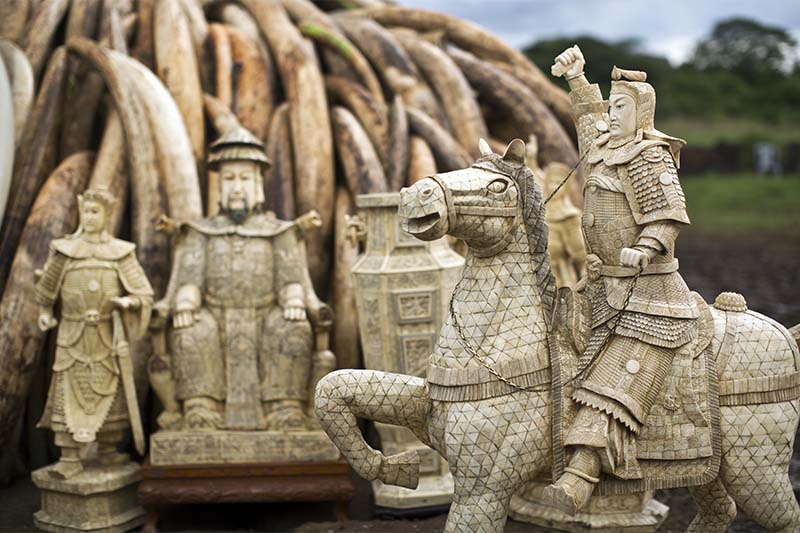African, Asian investigators break up ivory smuggling syndicate
NAIROBI: Seven smugglers involved in the illegal ivory trade from Uganda to Singapore have been arrested as a result of an 18-month investigation by African and Asian law enforcement officials, a counter-trafficking organisation said.
The operation netted a top Kenyan customs officer and shipping agents who facilitated the covert ivory pipeline, highlighting progress in Africa on cross-border collaboration by law enforcement agencies, Freeland, the anti-trafficking organisation that supported the operation, said.
Tens of thousands of African elephants are killed for their tusks every year, leading to drop of 20-30 percent in their numbers on the continent over the last decade.
However, environmentalists say law enforcement agencies are increasingly disrupting smuggling networks.
"These arrests reveal how the smuggling has been orchestrated," Freeland chairman Kraisak Choonhavan, a prominent Thai politician, said in a statement released over the weekend.
Freeland has been training a network of African investigators and facilitating cooperation with Asian counterparts.
Those arrested were linked to a seizure in March 2014 of a tonne of ivory in Singapore. That shipment was believed to have originated in Uganda and been shipped out of Kenya.
"We hope the investigation will now continue in Asia to find the big buyers who are sponsoring the killing of elephants. Africa is now ahead of Asia in going beyond seizures and making meaningful arrests of wildlife criminals," Choonhavan said.
Although the operation was focused on ivory smuggling, Freeland said a wildlife trafficking kingpin on Interpol's wanted 'Red Notice' list who was involved in smuggling pangolin scales had been caught and extradited to Tanzania.
Pangolin scales are used in traditional Chinese medicine, making the creatures one of the most widely trafficked wild animals in the world.






